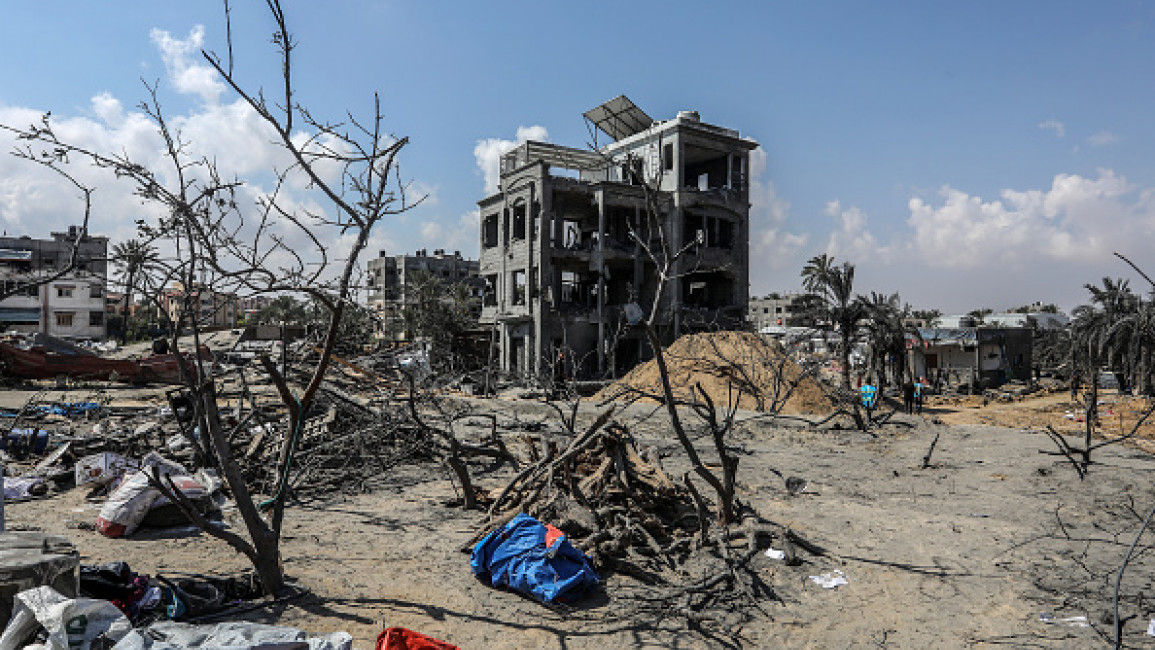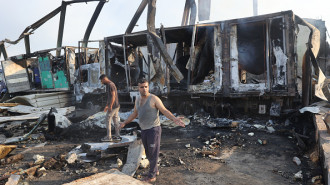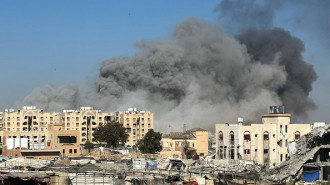Hamas says it has not withdrawn from ceasefire talks after latest Israeli attacks
Hamas has not withdrawn from ceasefire talks after the latest deadly Israeli attacks in Gaza, one of the group's senior officials said on Sunday.
The statement from Izzat El-Reshiq, a member of the political office of Hamas, who also accused Israeli Prime Minister Benjamin Netanyahu of trying to derail efforts by Arab mediators and the United States to reach a ceasefire deal.
The escalation in attacks by Netanyahu and his government aims to thwart efforts to end conflict, Reshiq said.
Reshiq's comments come after news agency AFP quoted a Hamas official on Sunday, reportedly stating the group is pulling out of Gaza truce talks, following the Israeli strike.
The senior official claimed Hamas was withdrawing from ceasefire talks because of Israeli "massacres" and the country's attitude in negotiations.
Ismail Haniyeh, Hamas's Qatar-based political chief, told international mediators of the "decision to halt negotiations due to the occupation's [Israel] lack of seriousness, continued policy of procrastination and obstruction, and the ongoing massacres against unarmed civilians", the official also alleged.
Two Egyptian security sources at ceasefire talks in Doha and Cairo told news agency Reuters on Saturday that negotiations had been halted after three days of intense talks.
Talks mediated by Qatar and Egypt, with US support, have for months tried but failed to bring a halt to the war in the Gaza Strip.
Israeli strike targeting Deif
Israel's strikes on Gaza's Al-Mawasi area killed at least 90 Palestinians and wounded around 300 others. The huge bombing campaign took place in an area where forcibly displaced Palestinians had sought refuge.
The attack was said to target the the group's military commander Mohammed Deif, who was "fine" despite the operation according to another Hamas figure.
"Commander Mohammed Deif is well and directly overseeing" the operations of the Hamas military wing, the official told AFP.
Israel said it had targeted Deif, the head of the Al-Qassam Brigades, as well as Rafa Salama, a brigade commander, in a strike on Saturday.
Israeli Prime Minister Benjamin Netanyahu said late Saturday there was "no certainty" either man had been killed in the strike.
Deif has been among Israel's most wanted men for decades and is blamed by Israeli authorities for the killings of multiple civilians and soldiers. There have been at least six previous attempts on his life.
He announced in an audio message the start of Hamas's surprise 7 October attack on southern Israel, with the Israeli military labelling him and Salama "two of the masterminds" of the attack.
No 'safe' humanitarian zones
Al-Mawasi, where the health ministry said dozens had been killed, had in May been declared a safe humanitarian zone by the Israeli military and civilians ordered to evacuate to it. However, there have been multiple deadly attacks there carried out by Israeli forces.
Philippe Lazzarini, head of the UN agency for Palestinian refugees, UNRWA, described the area as "a sandy 14-square-kilometre (5.4-square-mile) agricultural land, where people are left out in the open with little to no buildings or roads".
"The claim that people in Gaza can move to 'safe' or 'humanitarian' zones is false", said Lazzarini on social media site X.
The health ministry in the Gaza Strip said more than half of those killed in the attack were women and children, with hundreds left wounded.
The deaths in the camp in Al-Mawasi drew condemnation from governments across the region, with Egypt's foreign ministry saying such "crimes... cannot be accepted under any justification whatsoever".
A Hamas statement rejected Israel's claim it had targeted Deif, saying it was intended "to cover up the magnitude of the horrific massacre".



